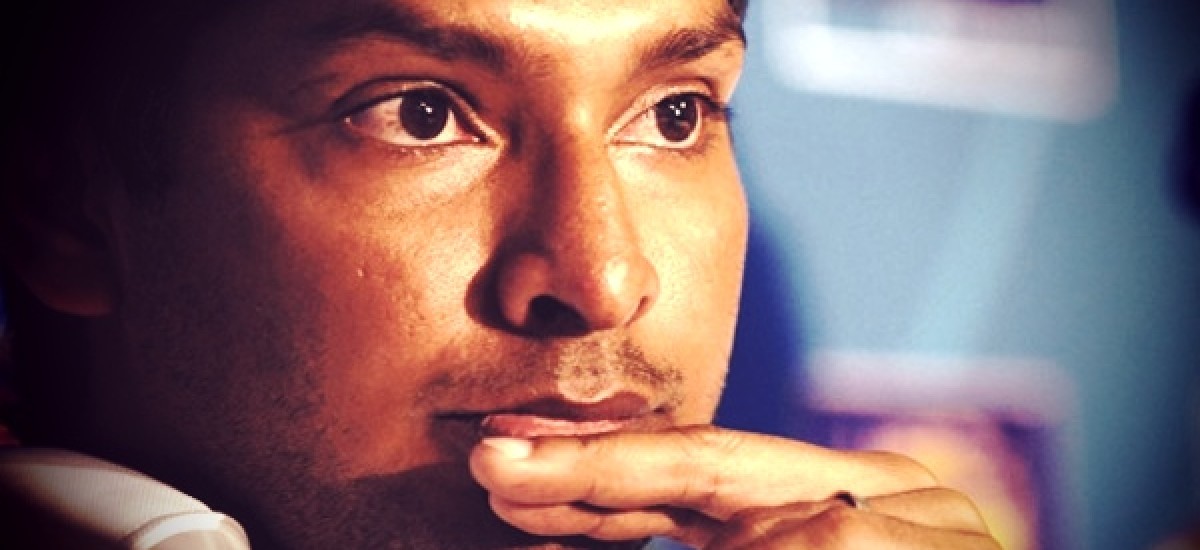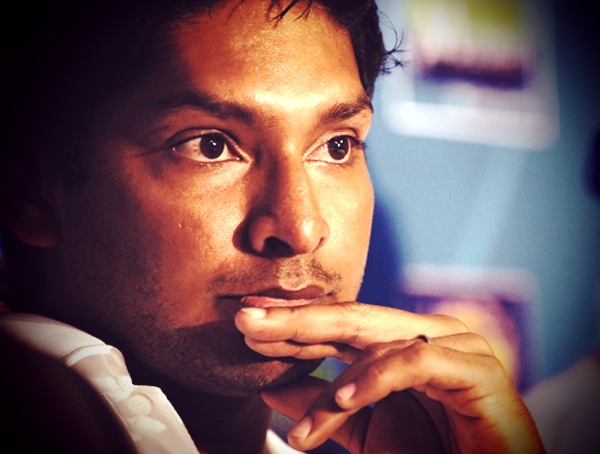I have always been a cricket fan. Cricket turns me into a flag waving, national anthem singing patriot and believer in the power of cricket to unite, to overcome all that is ugly and divisive in our country. As a child I even collected newspaper articles about my favourite cricketers which I pasted neatly in large exercise books. I remember reading with pride what foreign cricketing correspondents had to say about Sri Lanka’s first test match at Lords, about the spirit of Sri Lankan cricket, the gentleness, humour and courtesy of our cricket team; I was convinced that Sri Lankan cricket and cricketers could do no wrong. I have no illusions about this: these are clearly my latent middle class, romantic, public school impulses that years of exposure to a harsher and more realistic world have till recently failed to completely subdue.
Lately though my love affair with cricket (perhaps in best tradition of all great love affairs) has taken a bit of a beating. It started while watching the last World Cup opening ceremony in Dhaka, Bangladesh. After being entertained by energetic, vibrant displays from India and Bangladesh reflecting all the diversity and colour of those two countries as well as a spirit of fun and celebration, I waited in anticipation for the Sri Lankan slot. And what we got to my complete horror was a history lesson, Rajapakse style. As I first watched in disbelief a group of ‘modern’ Sri Lankan singers pranced around looking neither cool nor entertaining and I prayed fervently that things would improve from that point; alas, then we had a re-enactment of something that looked like the arrival of Vijaya as chronicled in the Mahavamsa. In complete contrast to how India and Bangladesh presented themselves, as modern nations looking forward and gaining strength from celebrating the diversity of their peoples and cultures, Sri Lanka presented itself as looking back to history for inspiration (not in itself a bad thing) but a particular history that highlighted only the story of one of its communities.
I was beside myself with frustration. Didn’t this regime at least have the political intelligence to realise that whatever its intentions it should at least pretend that it is interested in reconciliation? And that perhaps, to showcase the arrival of the Lion people in Sri Lanka was not the most inclusive message that should be broadcast to the world at the end of a devastating war? Then I realised that this is nothing to do with intelligence but the sheer arrogance of this regime and an articulation of its truly racist base and that therefore to expect anything different would have been futile. This regime is nothing if not based on Sinhala Buddhist supremacy thinking and that is evident in everything it does.
I lost any interest in the World Cup from that point. The thought of how a potential victory would be manipulated by the Rajapakse regime to represent their personal agenda was too much to contemplate and for the first time in my life, I actually wanted Sri Lanka not to win a cricket tournament. This feeling was merely reaffirmed with the sight of Namal Rajapakse, cocky and shameless as ever, handing out awards at the Mahinda Rajapakse International Cricket Stadium. The instructions to residents around the Sri Lankan cricket stadiums to clean up their houses, to drape Sri Lankan flags on the roads, to present a ‘tourist friendly’ façade, whatever their actual poverty stricken circumstances merely cemented this feeling of disillusionment. The spectacle of politicians (including Presidential father and his ambitious son) and cricketing administrators jostling for VIP seats at the final as if their place there was a god given right, rumours of political interference and the glum expressions on the faces of the Sri Lankan cricketers at the final in Mumbai was a fitting end to this World Cup. I am no cricketing pundit, but clearly the one sport at which Sri Lanka was able to compete internationally and win, has also become a victim of the Rajapakse regime’s insatiable desire to control and invade every aspect of our lives for the sake of their aggrandisement.
And now we have Kumar Sangakkara’s much publicised speech at the MCC. There is no doubt, that Sangakkara is an extremely intelligent, articulate and eloquent man and his speech at the MCC displayed these qualities admirably. However, does the content of his speech warrant the excitement that it has generated? Can his speech be hailed as a strike against this regime and Sri Lanka’s political structures? I have no bones to pick with his analysis of Sri Lankan cricket and what happened to it after Sri Lanka won the World Cup in 1996. The criticisms he made of the politicisation and corruption of the Sri Lankan Cricket Board were spot on. However, to pretend that this speech was anything more than that I think is a mistake. To consider Sangakkara an anti-establishment hero, would be to read into this speech far more than perhaps even Sangakkara intended.
Sangakkara’s interpretation of key political events in Sri Lanka was either less intelligent or extremely discreet and shrewd. His portrayal of the JVP insurrection of 1989 was carefully one sided and his representation of the 30 year ethnic conflict and the end of the war was from a wholeheartedly Sinhala perspective. His celebration of the end of the war and resulting ability of his children to go to school without fear left out a whole story about the suffering and pain wrought mainly on the Tamil community that was the cost of that peace. One could arguably still justify the end of the war, but never without acknowledging the human cost of ending that war. To do so indicates an extreme insensitivity to the pain and suffering of others.
In presenting this highly sanitised version of the last months of the war, Sangakkara fitted in perfectly with the Rajapakse regimes’ interpretation of events. It is no accident that Gotabhaya Rajapakse has hailed Sangakkara’s speech or that the ilk of Gomin Dayasiri and S.L Gunasekera too have applauded Sangakkara. Their approval comes from the Sinhala Buddhist supremacist’s perspective. From their point of view, Sangakkara achieved what no Sri Lankan diplomat has been able to do so far; to present a sanitised view of the Sri Lankan conflict and to receive a standing ovation for doing so from a mainly white, Western audience – traditionally this regime’s strongest critiques! The fact that the Sports Minister was unable to recognise this and instead proceeded to put his foot in it by calling for an inquiry on Sangakkara is merely an indication of his own lack of intelligence and foresight. In doing so, he too contributed to making Sangakkara more of a hero than he need be – not only did Sangakkara speak the truth, now he is being persecuted for it!
Furthermore, Sangakkara’s analysis of cricket’s ability to unite and bring together people, to lead reconciliation efforts in the post-war era, while romantic and resounding with the spirit of the ‘gentleman’s game’ is unrealistic to say the least. Sri Lankan cricket has never been able to do that. For all the hype about the multicultural nature of the Sri Lankan cricket team, and Murali being constantly hailed as the symbol of this multiculturalism, Murali let us not forget is a ‘good’ Tamil: one that is acceptable to the Sinhalese. I very much doubt if any other type of Tamil, or member of other minority group would have made it to the Sri Lankan team. While Sangakkara’s tsunami stories were touching, they if anything highlighted the generosity and the resilience of the people in those camps than the power of cricket. I very much wonder if the cricketers visited the IDP camps at the end of the war and what kind of reception they would have got had they gone then.
Finally, there is one other point that perhaps explains the excitement that Sangakkar’s speech has generated; Sangakkara comes from the kind of elite social background that gives him the kind of standing and protection that appeals across political divides. A product of Trinity College, from a well connected family, his polished English and cosmopolitan ways speaks to a certain class as well. Unsurprisingly, even the more vociferous critiques of this regime especially of its conduct during the last days of the war have been uncritically admiring of Sangakkara’s MCC speech. That admiration is perhaps not so much for the content of his speech, but his delivery and image which makes him such a hit within the international community as well as among the Sri Lankan elite community. Although Sangakkara pointed out the elite nature of cricket traditions in Sri Lanka and applauded its gradual democratisation (at least socially), again, this is not the whole truth. Sanath Jayasuriya and others may have come from less privileged backgrounds but where are they today? Do they in any way represent the interests of those whose backgrounds they once shared?
The overwhelmingly warm reception for Sangakkara’s speech clearly affirms that at the end of the day, social and class ties speak louder than any political position. The fact that Sangakkara’s performance was so polished and that he held his own at the Mecca of English cricket would have warmed the cockles of the hearts of most self-conscious post-colonialists. After all, he showed them; that a Sri Lankan can be as good if not better than any one of them!
Arjuna Ranatunga is perhaps the anti-thesis of this; Ranatunaga would never have been invited to make such a speech in the first place; neither would he have managed to please so many people. He would definitely have caused far more controversy and garnered far less support. Ranatunga’s positions (rightly or wrongly) are far more challenging and make more people uncomfortable. Ranatunga could have made a speech similar to that of Sangakkara and it would have been received quite differently; his presence alone which displays a certain carelessness and disregard for norms and conventions can make people uncomfortable. Ranatunga was not a ‘gentleman cricketer’ and he cultivated that image shrewdly to his own and Sri Lankan cricket’s advantage. I suspect Sangakkara himself is intelligent enough to understand this which is why he dwelt at length on Ranatunga’s contribution to Sri Lankan cricket.
Let’s enjoy Sangakkara’s speech for what it was: an articulate and intelligent analysis of the history of Sri Lankan cricket and its current position. In doing so, he identified very clearly who was responsible for its current malaise. Beyond that, Sangakkara played it safe. That does not diminish in any way from what he accomplished, but it does not make him a political hero. I very much doubt if he intended it to be otherwise.


